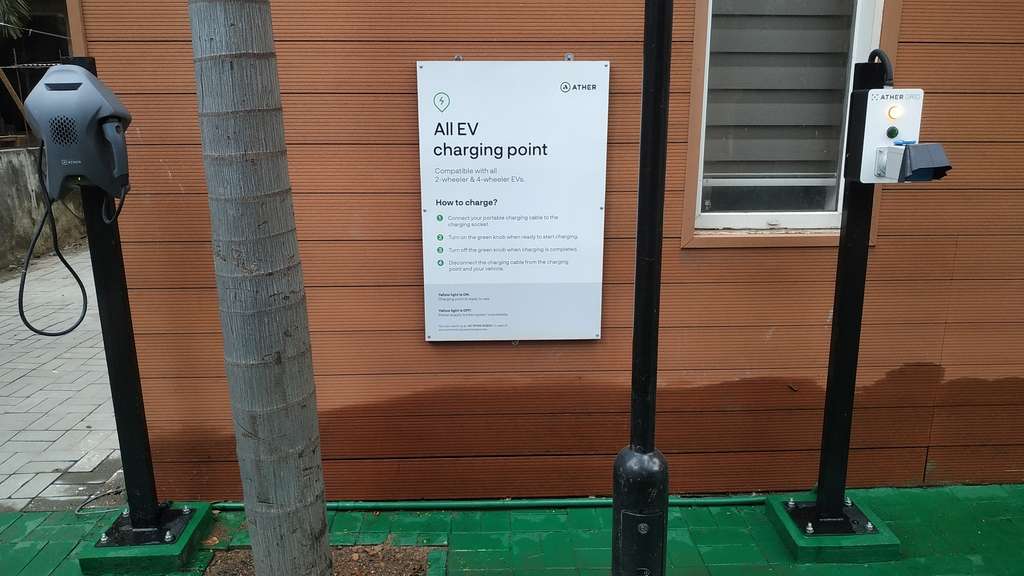HIMT Receives GREEN BUILDING Certificate From Edge for Tidal Park New Campus
One of the biggest challenges that we’re facing today is the environmental danger to our planet. Global warming, climate change, and plastic pollution have become topics we hear about regularly in the news
HIMT has taken up the Challenge of Going Green. HIMT is functioning as a green business in the best interests of the local and global environment, meaning it supports the community and economy dependent on a healthy planet. An environmentally aware business considers more than just profits — it considers its impact on society and the environment.
HIMT setup a corporate-wide challenge – with tangible goals — to reduce water, waste, greenhouse gasses, improve nutrition, hygiene and use sustainable suppliers
HIMT is eco-friendly means thinking about the ecology of the earth and making sure the practices HIMT keeps have a minimal impact on the earth itself.
HIMT dorms have solar panels as an environmentally friendly measure.

- Sewage Treatment Plant installed
- Solar street lights in Kalpakkam Campus
- Solar Panels installed at Tidal Park and Kalpakkam Campus
- Electrical Vehicle (EV) charging stations in Tidal Park & Kalpakkam Campus
1. Energy supply
Whether it is a constructing of building with more efficient environmentally substantial windows and panels that use solar, wind or even water power, during past several years the colleges become a way eco-friendlier. Some programs promote the conservation in any aspect and the composting bins.
2. Using electronics instead of paper
The world now is digitally focused, and this is good news for a planet. A lot of colleges are equipped with computer classes, electronic libraries, and online testing programs. You may also have with taking notes electronically in order not to waste paper and money on buying notebooks. Instead of buying a book, prefer to borrow it or get only if necessary.
3. Opening a refectory with a local eco food
Organic food and organic gardening is a modern, healthy part of a sustainable lifestyle. The most colleges now have the individual spaces for organic gardening where any student can work to show their faith-based actions. They can grow plants, vegetables or fruits that are used in the kitchen of the campus for preparing healthy food.
The administration of some universities now got rid of trays – they state it will prevent students from over-eating and wasting food. Instead, a student takes a plate where he can put only as much as he can eat.
4. Having a place for refilling a water bottle
As you know, only 20% of plastic bottles will be recycled. The question is that where did other 80% proceed to? The management of some colleges take concrete measures to fight this issue: they don’t sell plastic bottles on the territory of campus. As an alternative, they give reusable water bottles and provide with stations of water filling. Isn’t it an amazingly simple and useful to evolve an initiative to become environmentally conscious?
5. Special campaigns for students
It is important for colleges to have some green project ideas for college students that may evolve students to concrete actions toward the protection of an ecology. It can be something like tree planting, street cleaning or any other environment-themed campaigns.
The effective way to make the more environmentally sustainable community is creating a communication between students and management. Every student may have his fresh ideas of go green, and it will be good and if the management could encourage them and help to realize.
6. Good old recycling
Almost every college has recycling bins and trash cans on its territory. The faculty and staff should be responsible for what and where they throw away – it will be a good example for every student.
7. Creating eco-friendly rules in a campus
- Turn off everything
- Using LED light bulbs
- Reduce, reuse, recycle
- Water-usage control (only a 5-minute shower)
- Buy recyclable and eco products, e.g. you can even find eco friendly wooden watches these days.
- Wash cups and plates, don’t use disposable paper or plastic utensils
- Walk, bike and use public transport instead of a car








